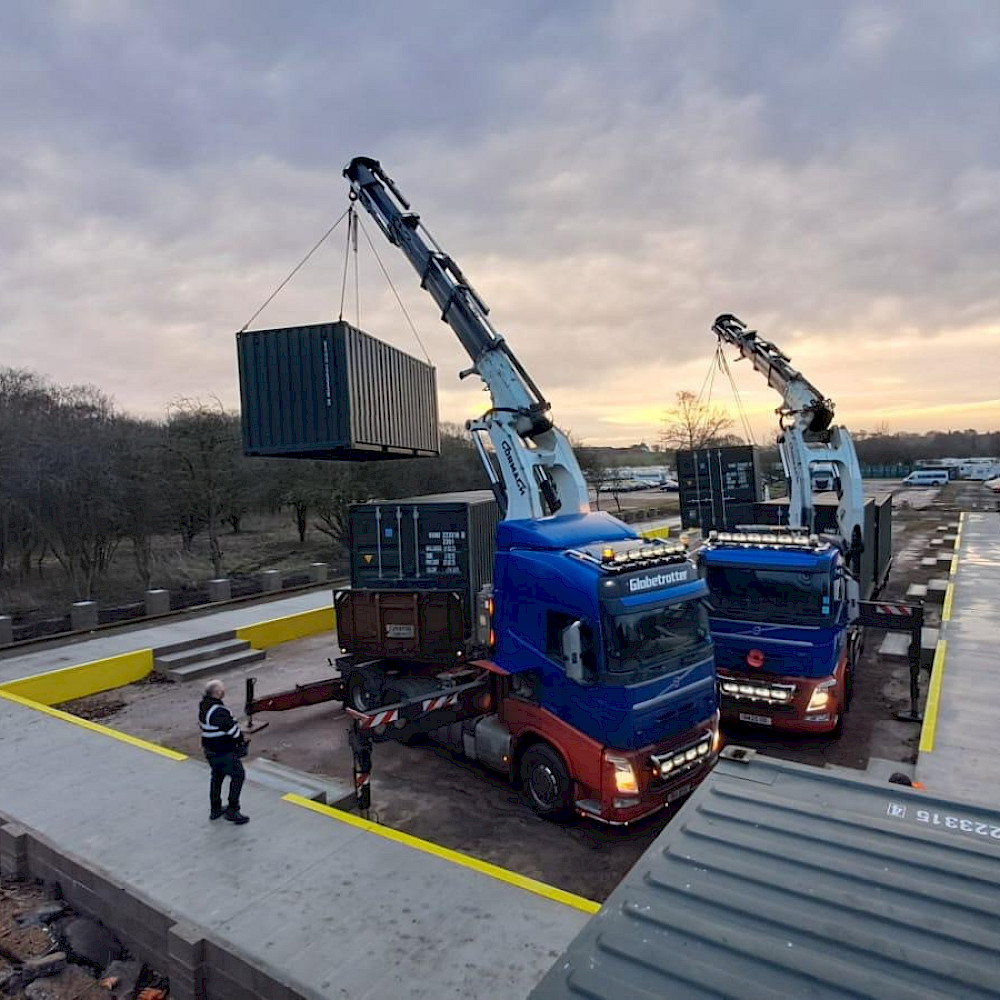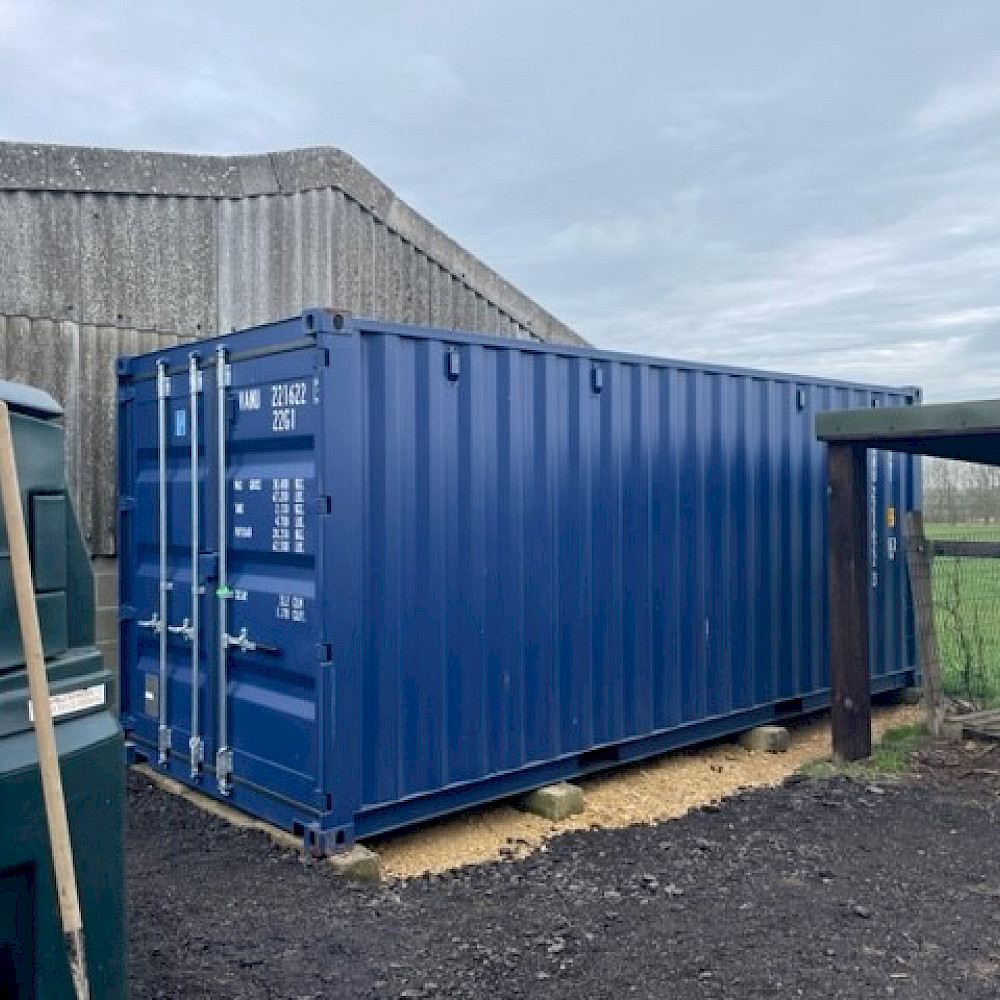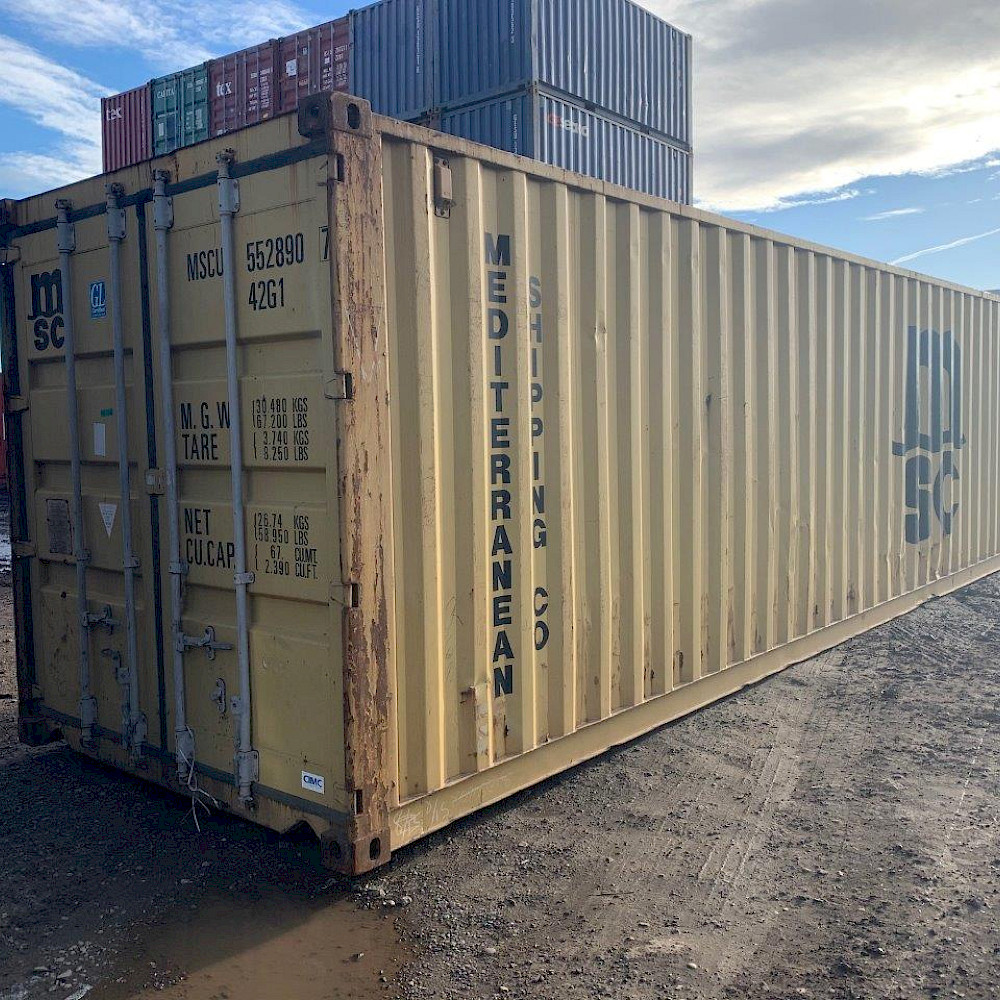Renting vs Buying A Shipping Container
16 September 2024

Here’s a detailed breakdown of the pros and cons of renting vs buying a shipping container to help you make a more informed decision on what’s best for your needs
Renting a Shipping Container
Pros:
- Lower Initial Cost – You’ll only pay delivery and collection upfront, and then you’ll have a rolling monthly rental fee to pay instead of a larger upfront cost.
- Short Term Flexibility – Renting is ideal for short-term projects, such as temporary storage, moving, seasonal stock storage or construction site use. You can rent it for only as long as you need it.
- Maintenance/Repairs – Containers are extremely strong and durable, and are unlikely to need any maintenance whilst on hire to you.
- Less Commitment – You can return the container when your need for it ends, avoiding long-term financial commitment or ownership responsibilities.
Cons:
- Long-Term Costs Add Up - While the upfront cost is low, renting for an extended period can become more expensive than buying in the long run.
- Limited Modifications – You generally can’t modify or customise a rental container (e.g. adding windows, doors, electrics or insulation), as it must be returned in its original condition.
- No Ownership – You won’t build any equity in the asset. At the end of the rental agreement, you don’t own the container despite paying for it over time.

Buying a Shipping Container
Pros:
- Long-Term Cost Savings – If you need a container for an extended period, buying is more cost-effective as you make a one-time investment rather than ongoing rental payments.
- Full Ownership – You own the container outright, giving you full control over its use and management. It becomes an asset you can sell or repurpose.
- Unlimited Modifications – You can modify the container as you wish, without worrying about returning it to it’s original condition.
- Long Term Use – If you foresee a permanent or recurring need for storage, owning the container ensures you always have it to hand.
- Investment Opportunity – A shipping container can be repurposed or resold, potentially offering a return on your investment in the future. Shipping Containers retain their value very well compared to many other assets.
Cons:
- High Upfront Cost – Buying a container can be a large upfront expense. If you require multiple though, you could consider using asset finance to fund them.
- Maintenance Responsibility – Once you own the container, you’re responsible for all maintenance repairs and upkeep, which can add to the long-term costs. Luckily, they should be minimal.
- Lack of Flexibility – If your needs change, you may be stuck with the container unless you can sell it. Ownership may be less practical if you only need it temporarily.
- Depreciation and Storage – If your container is not used or maintained well, the container may depreciate in value, and finding a place to store it might become a challenge.
To discuss your storage requirements, you can contact us here


